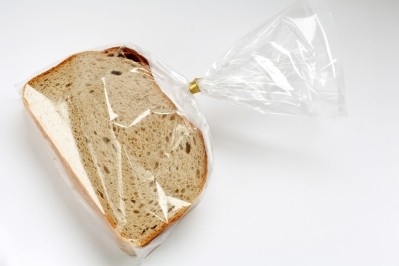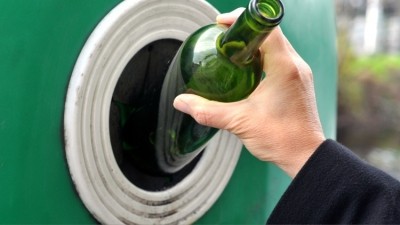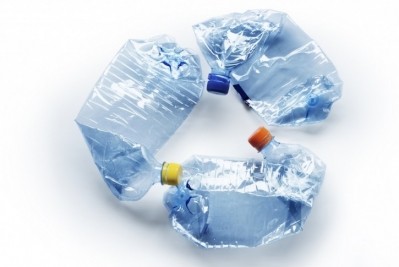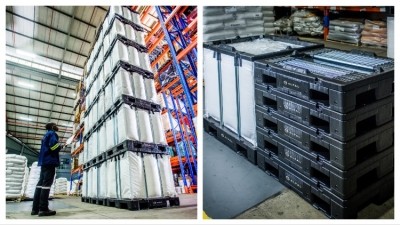Opinion
The big problem with EPR and DRS

Packaging appears to be on everyone’s agenda – and the attention is only increasing as we see various Government initiatives emerging.
But I have a fear that using taxes to control behaviour might, in fact, stifle ours and others innovation in the future.
I realise I live and work in the heart of rural Devon, so Westaways is far more likely to supply customers who already compost at home. However, we are seeing the use of compost expanding, with schools and hotels that use our sausages equipped with their own composting facilities.
And I strongly believe that composting needs to be part of the solution as we strive towards a more sustainable industry and world.
The plastic problem
Plastic pollution is a global crisis, with millions of tons of plastic waste ending up in landfills and oceans each year. Traditional plastic packaging, commonly used in the food industry, contributes significantly to this problem. It takes hundreds of years to decompose, releasing harmful chemicals into the environment and posing a threat to wildlife.
In an era where environmental sustainability is more critical than ever, Westaway Sausages has emerged as a trailblazer in the food industry. Our UK-based company has taken significant strides in reducing plastic waste by adopting certified compostable packaging, setting a new standard for eco-friendly practices.
Recognising the urgent need for change, we made a bold move and introduced certified compostable packaging to replace conventional plastic trays and film. Our commitment to sustainability goes beyond mere compliance with environmental regulations. We have embraced a holistic approach that considers the entire lifecycle of our products.
Our packaging is made from renewable resources, such as plant-based material, and designed to break down into natural elements within a short period, leaving no toxic residue behind.
It is certified by reputable organisations, ensuring that it meets stringent standards for composts. This means that the packaging can be safely composted in both industrial and home composting systems, returning valuable nutrients to the soil.
However, current UK initiatives such as the Deposit Return Scheme (DRS) and Extended Producer Responsibility (EPR) present challenges that hinder the broader adoption of such sustainable solutions.
The challenges of upcoming UK sustainability regulations
While DRS and EPR are designed to reduce plastic waste and promote recycling, they are not flexible enough to support the development and use of alternative packaging solutions, including compostable packaging.
Deposit Return Scheme (DRS)
The DRS aims to increase recycling rates by incentivising consumers to return their used packaging for a refund. Although this system works well for traditional plastic and glass containers, it does not account for compostable packaging. As a result, companies like Westaway Sausages that invest in sustainable alternatives do not receive the same level of support and recognition.
Extended Producer Responsibility (EPR)
The EPR framework places the full cost and responsibility for managing packaging waste on producers, with packaging producers responsible for paying 100% of the costs associated with packaging when it reaches the end of its life.
Before EPR, these costs were shared between the four activities in the packaging supply chain – the raw material manufacturer 6%; the convertor 9%; the packer/filler 37%, and the seller 48%.
The new EPR legislation holds product and packaging manufacturers, importers and brand owners such as Westaway Sausages responsible for minimising the environmental impact of their goods and packaging throughout their lifecycle. While this is supposed to be a step in the right direction, it often only focuses on recycling rather than including composting.
Compostable packaging, despite its environmental benefits, is not always included in EPR schemes, making it difficult for companies to justify the higher costs associated with sustainable materials.
Simpler Recycling Scheme
We must also give mention to Defra’s Simpler Recycling Scheme, whereby compostable materials will be labelled ‘do not recycle’. This means they will need to be put in the household bin destined for landfill/incineration!
The need for policy reform
To truly support the development and use of alternative packaging, UK policies need to evolve. Here are a few recommendations to address the challenges faced by companies like ours:
- Inclusion of compostable packaging in DRS: The DRS should be expanded to include compostable packaging. This would incentivise consumers to return compostable materials for proper disposal and ensure that companies investing in sustainable solutions are rewarded.
- Recognition of compostable packaging in EPR: The EPR framework should recognise the environmental benefits of compostable packaging and provide financial incentives for its use. This could include reduced fees for companies that adopt certified compostable materials by allowing a company to offset part of its EPR obligation against the higher costs incurred in using sustainable compostable packaging.
- Public awareness campaigns: Educating consumers about the benefits of compostable packaging is crucial. Public awareness campaigns can help shift consumer behaviour towards more sustainable choices and increase demand for eco-friendly products.
- Investment in composting infrastructure: To support the widespread adoption of compostable packaging, the UK needs to invest in composting infrastructure. This includes expanding industrial composting facilities and promoting home composting practices.
The future of sustainable packaging
Westaway Sausages’ pioneering efforts in using certified compostable packaging demonstrate that sustainable alternatives are not only feasible but also beneficial for the environment. However, for these solutions to become mainstream, supportive policies and infrastructure are essential.
By reforming initiatives like DRS and EPR to accommodate compostable packaging, the UK can lead the way in promoting sustainable practices. Companies like Westaway Sausages should be celebrated and supported for their commitment to reducing plastic waste and protecting the planet.
In conclusion, the journey towards sustainable packaging is challenging but necessary. We have shown that with innovation and determination, it is possible to make a positive impact. Now, it is up to policymakers, industry leaders and consumers to work together and create a future where sustainable packaging is the norm, not the exception.
















